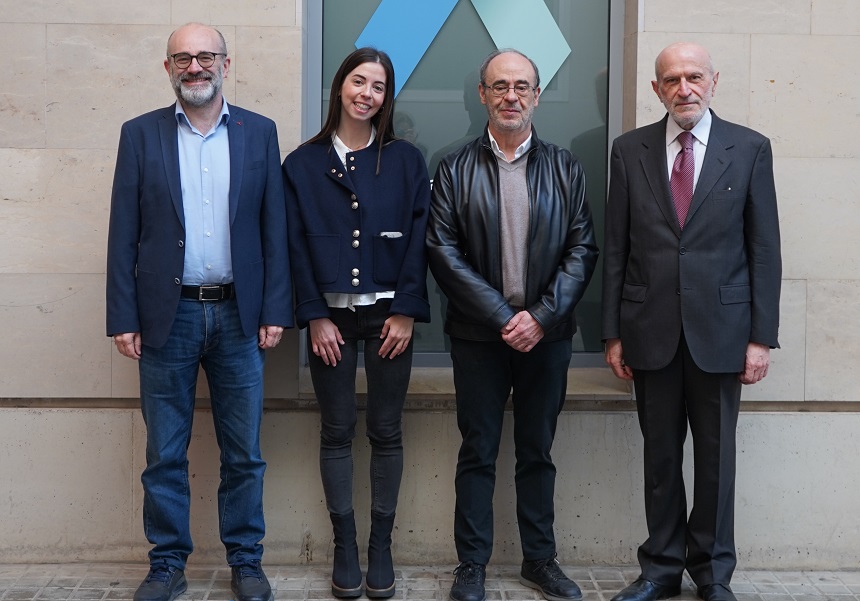
The University of Valencia, together with the INCLIVA Health Research Institute of the Hospital Clínic Universitari de València, has led a study involving the Hospital La Fe de València and Oftalvist and with the collaboration of the Universitat Politècnica de València to analyse the most effective doses of anti-VEGF to treat the retinopathy of prematurity and to avoid adverse effects. The results have been published in the journal Survey of Ophthalmology.
The primary objective of the research was to use the network meta-analysis methodology to determine whether lower intraocular doses of anti-vascular endothelial growth factor (VEGF) antibodies are as effective as higher doses in treating retinopathy of prematurity. The study includes contributions from José Luis Ortiz (lead author of the article) and Esteban Morcillo, both lecturers in the Department of Pharmacology at the University of Valencia and members of the INCLIVA Inflammation Research Group.
Retinopathy of prematurity is a condition that affects preterm newborns with low birth weight and poses an increased risk of future visual defects, including blindness, in addition to other prematurity-related comorbidities. The care provided in neonatal intensive care units and the knowledge of ophthalmologists and pediatricians of this pathology have improved its treatment and prognosis.
Treatment of retinopathy of prematurity can be done, among other therapeutic options, by intraocular administration of drugs that are monoclonal antibodies against vascular endothelial growth factor, a factor involved in the abnormal overgrowth of retinal vessels of premature infants. However, there has been debate about the most appropriate dose for intravitreal administration.
The current work reviewed scientific literature by analysing 68 studies. It is, therefore, the most comprehensive analysis published to date on the use of anti-VEGF drugs in the treatment of retinopathy of prematurity. It concludes that lower doses than those conventionally considered are effective with a lower likelihood of adverse events. Intravitreal injections of anti-VEGF antibodies are a current standard treatment for retinopathy of prematurity (ROP).
The first author of the article is Amparo Ortiz-Seller, from the Pediatric Ophthalmology Unit of the Oftalvist Clinic in Valencia. Other participants include Honorio Barranco and Isabel Pascual-Camps, from the Pediatric Ophthalmology Unit of the Hospital La Fe, and Pablo Martorell, from the Department of Nuclear Engineering of the Universitat Politècnica de València.
Article Reference: Ortiz-Seller, A., Martorell, P., Barranco, H., Pascual-Camps, I., Morcillo, E., & Ortiz, J. L. (2024). Comparison of different agents and doses of anti-vascular endothelial growth factors (aflibercept, bevacizumab, conbercept, ranibizumab) versus laser for retinopathy of prematurity: A network meta-analysis. Survey of ophthalmology, S0039-6257(24)00008-0. Advance online publication. https://doi.org/10.1016/j.survophthal.2024.02.005

.jpg)








